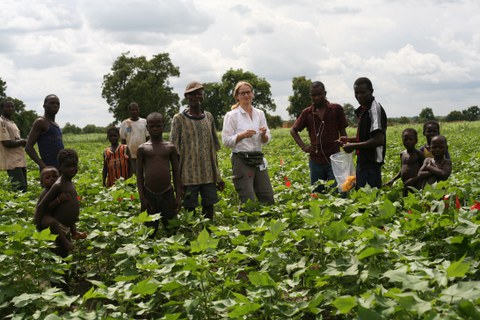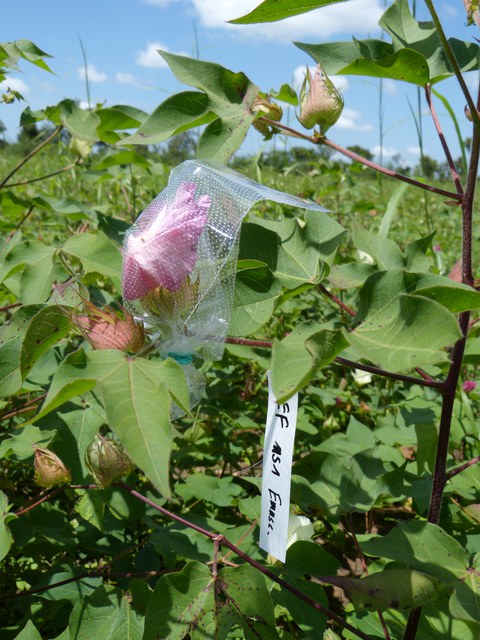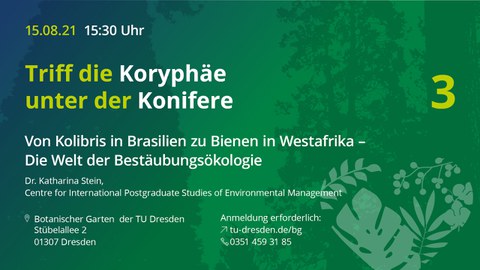Aug 05, 2021
Meet the luminary among the conifers - pollination ecologist Katharina Stein
For the third time, there is a lot to learn about current research among the conifers in the botanical garden at Stübelallee 2. On August 15 (3:30 p.m.), pollination ecologist Dr. Katharina Stein answers questions from the guests.

Dr. Katharina Stein preparing pollination tests with cotton farmers in a field in Burkina Faso.
The number of insects is decreasing worldwide - which also affects the plants they pollinate. But how exactly do the yields of individual species change if, for example, there are no bees? Previous studies on this were mainly devoted to the cultivated plants of the Global North. Instead, Katharina Stein examined two important crops in Burkina Faso. Around 80 percent of the population of the West African country are small farmers. Most of the harvest is used to feed the family. In addition, many families also grow so-called cash crops, which are intended for export. These include above all cotton and sesame, both plants that are pollinated by bees.

A marked cotton blossom from the pollination experiment.
In the course of her research, Katharina Stein not only learned a lot about the importance of bees for pollination and agricultural yields. She also experienced very personally how the power of large seed companies can affect smallholder agriculture, but also research. She looks forward to the discussion and questions from the guests: "Pollination affects us all - regardless of whether here in Dresden or in Burkina Faso."
Katharina Stein studied in Leipzig and Halle and did research not only in West Africa but also in the Atlantic Rainforest in Brazil. She is currently working at the Center for International Postgraduate Studies of Environmental Management (CIPSEM) at TU Dresden, where she is designing advanced training courses for specialists from the Global South.
Since the number of participants is limited, we recommend registering by E-Mail or tel:03514593185
If necessary, a sign language interpreter can accompany the event. Please help us to support you and let us know up to a week before the event if we should organize this. Many Thanks.

